第37章 Mr. Smellingscheck(2)
He never hurried in anything. The way he cleaned his teeth, shaved, and made his toilet almost transformed the place, in my imagination, into a gentleman's dressing-room.
He talked politics and such things in the abstract -- always in the abstract -- calmly in the abstract. He was an old-fashioned Conservative of the Sir Leicester Deadlock style. When he was moved by an extra shower of aggressive democratic cant -- which was seldom -- he defended Capital, but only as if it needed no defence, and as if its opponents were merely thoughtless, ignorant children whom he condescended to set right because of their inexperience and for their own good. He stuck calmly to his own order -- the order which had dropped him like a foul thing when the bottom dropped out of his boom, whatever that was. He never talked of his misfortunes.
He took his meals at the little greasy table in the dark corner downstairs, just as if he were dining at the Exchange. He had a chop -- rather well-done -- and a sheet of the `Herald' for breakfast.
He carried two handkerchiefs; he used one for a handkerchief and the other for a table-napkin, and sometimes folded it absently and laid it on the table.
He rose slowly, putting his chair back, took down his battered old green hat, and regarded it thoughtfully -- as though it had just occurred to him in a calm, casual way that he'd drop into his hatter's, if he had time, on his way down town, and get it blocked, or else send the messenger round with it during business hours. He'd draw his stick out from behind the next chair, plant it, and, if you hadn't quite finished your side of the conversation, stand politely waiting until you were done.
Then he'd look for a suitable reply into his hat, put it on, give it a twitch to settle it on his head -- as gentlemen do a "chimney-pot" -- step out into the gangway, turn his face to the door, and walk slowly out on to the middle of the pavement -- looking more placidly well-to-do than ever. The saying is that clothes make a man, but HE made his almost respectable just by wearing them.
Then he'd consult his watch -- (he stuck to the watch all through, and it seemed a good one -- I often wondered why he didn't pawn it); then he'd turn slowly, right turn, and look down the street.
Then slowly back, left-about turn, and take a cool survey in that direction, as if calmly undecided whether to take a cab and drive to the Exchange, or (as it was a very fine morning, and he had half an hour to spare) walk there and drop in at his club on the way. He'd conclude to walk.
I never saw him go anywhere in particular, but he walked and stood as if he could.
Coming quietly into the room one day, I surprised him sitting at the table with his arms lying on it and his face resting on them.
I heard something like a sob. He rose hastily, and gathered up some papers which were on the table; then he turned round, rubbing his forehead and eyes with his forefinger and thumb, and told me that he suffered from -- something, I forget the name of it, but it was a well-to-do ailment.
His manner seemed a bit jolted and hurried for a minute or so, and then he was himself again. He told me he was leaving for Melbourne next day. He left while I was out, and left an envelope downstairs for me.
There was nothing in it except a pound note.
I saw him in Brisbane afterwards, well-dressed, getting out of a cab at the entrance of one of the leading hotels. But his manner was no more self-contained and well-to-do than it had been in the old sixpenny days -- because it couldn't be. We had a well-to-do whisky together, and he talked of things in the abstract.
He seemed just as if he'd met me in the Australia.